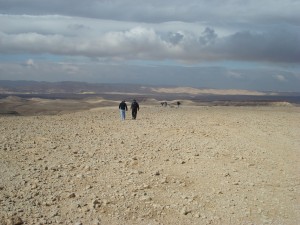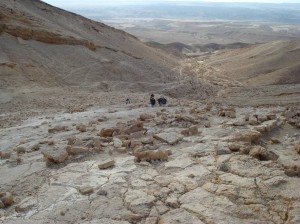“Leave it alone for one more year, and I’ll dig around it and fertilize it. If it bears fruit, fine! If not, then cut it down.” ~Luke 13:8-9
 There is a time limit. The Master is not calling for the indefinite existence of a bad tree. It’s got one more year. The health of the vineyard is too important, the Master’s expectation for fruit is too strong to leave in place an unproductive, non-responsive tree taking up good ground. It’s got one more year. One more season. One more chance. And then, if it doesn’t respond to the patience and care of the Master? Then, cut it down.
There is a time limit. The Master is not calling for the indefinite existence of a bad tree. It’s got one more year. The health of the vineyard is too important, the Master’s expectation for fruit is too strong to leave in place an unproductive, non-responsive tree taking up good ground. It’s got one more year. One more season. One more chance. And then, if it doesn’t respond to the patience and care of the Master? Then, cut it down.
There’s an urgency in this parable that we shouldn’t miss. The tree is going to be held accountable. And it’s only got a short time left to respond to the farmer’s patience. Something’s got to change. The coming judgment is real.
“We must all appear before the judgment seat of Christ, that each one may receive what is due him for the things done while in the body, whether good or bad.” ~2 Corinthians 5:10
The holiness and righteousness of God demands justice and judgment. Romans says we will all stand before God’s judgment; every knee will bow and every tongue will confess; each of us will give an account of our lives to God. There is a judgment coming. God is going to judge the world. And it’s one of the best kept secrets in the Bible.
We don’t talk about it. Judgment sounds harsh or cruel. The idea of God’s divine judgment clashes with what works in our culture — even our church culture. We barely acknowledge it anymore. The only time we speak about God’s judgment is when we’re making fun of people who talk about God’s judgment. We don’t preach God’s judgment. I don’t. Not very much.
But this parable…
This tree’s got one year. That’s it. And then it’s over.
There’s a story about Satan meeting with his demons in hell, working on their strategies against us humans. The first demon said, “I’ll go tell people there’s no heaven.” The second demon said, “I’ll tell people there’s no hell.” The third demon said, “I’ll tell people there’s no hurry.” Satan said, “Yes! That’s the plan!”
No hurry? That tree’s got one year. That’s it. If it bears fruit next year, fine. If not, then cut it down.
There’s an urgency in Jesus’ story. But we don’t feel that urgency. We appreciate the manure of God’s great patience and his merciful restraint. But we don’t even think about that coming judgment. In this country, in this century, as our sense of self grows larger and larger and our sense of God becomes smaller and smaller, we fear God so little we don’t understand the seriousness of our sin. And we sense the seriousness of our sin so little, we very seldom fear God. That’s a bad place to be.
“Do you show contempt for the riches of his kindness, tolerance, and patience, not realizing that God’s kindness leads you toward repentance? But because of your stubbornness and your unrepentant heart, you are storing up wrath against yourself for the day of God’s wrath, when his righteous judgment will be revealed.” ~Romans 2:5-6
He gave the tree one more year. One more season. If it bears fruit, fine. If not, cut it down.
There’s an urgency here. It’s later than we think. One of the elders at the Legacy church, Kent Robinson, says every single day, “It’s later now than it’s ever been before!” He’s right. And the time to act is right now, during this season of God’s patience, during this time when God is holding back the ax and spreading the manure of his grace and forgiveness. Now is the time to respond, not tomorrow. Now is the time of God’s favor. Now is the day of salvation. God’s mercy is being extended now. The opportunity for a fruitful life is now.
I don’t know how much time we’ve got. I don’t know. Apparently, even Jesus isn’t sure. But that day’s coming for each of us. That tree’s got one more year. You might have longer. Maybe.
Peace,
Allan










Recent Comments